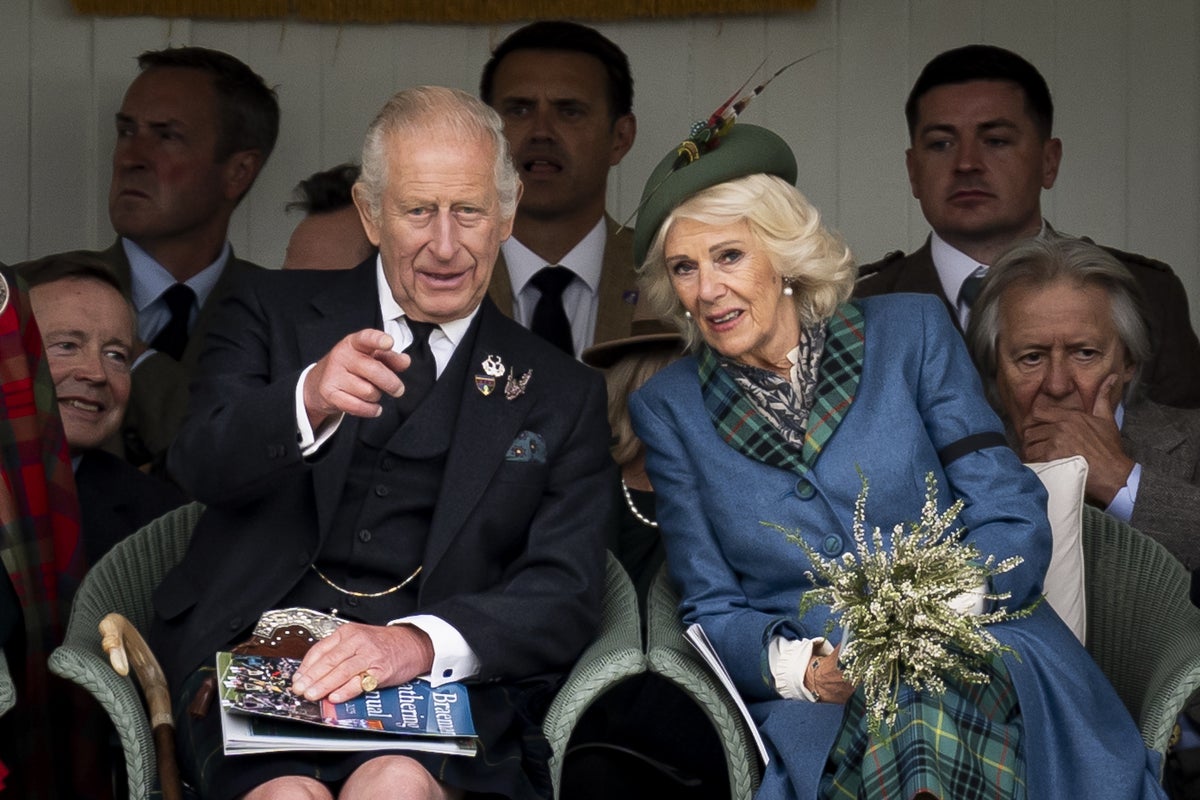Your support helps us to tell the story
From reproductive rights to climate change to Big Tech, The Independent is on the ground when the story is developing. Whether it’s investigating the financials of Elon Musk’s pro-Trump PAC or producing our latest documentary, ‘The A Word’, which shines a light on the American women fighting for reproductive rights, we know how important it is to parse out the facts from the messaging.
At such a critical moment in US history, we need reporters on the ground. Your donation allows us to keep sending journalists to speak to both sides of the story.
The Independent is trusted by Americans across the entire political spectrum. And unlike many other quality news outlets, we choose not to lock Americans out of our reporting and analysis with paywalls. We believe quality journalism should be available to everyone, paid for by those who can afford it.
Your support makes all the difference.Read more
Support for the monarchy has hit a record low, according to new research.
Although more than half of people favour keeping the royals over an elected head of state
The proportion of people believing it is important to keep the monarchy has fallen from 86 per cent, when the question was first asked in 1983 for the British Social Attitudes (BSA) survey, to 51 per cent in 2024.
This is the lowest level of support recorded since the National Centre for Social Research (NatCen) began tracking public opinion some 40 years ago.
The survey findings come ahead of the state visit of US President Donald Trump to the UK.
The King will host the US leader at Windsor Castle from September 17-19, when Mr Trump will be feted with a ceremonial welcome and a state banquet.
The trip will be Mr Trump’s second state visit to the UK, an unprecedented gesture for a US president.
According to the latest polling by NatCen, around one in three (31 per cent) felt the monarchy was not important when asked last year, up from one in 10 in 1983.

open image in gallery
(PA Wire)
Some 15 per cent now say they support the abolition of the monarchy, up from just 3 per cent in 1983.
In a new question, survey participants were asked to choose between keeping the monarchy or replacing it with an elected head of state.
More than half (58 per cent) said they favoured retaining the monarchy, with 38 per cent saying they would prefer an elected head of state.
The results also showed younger people were more likely to favour an elected head of state, and that keeping the monarchy was a stance strongest among supporters of the Conservative and Reform UK parties (82 per cent and 77 per cent respectively).
Labour supporters were almost evenly split, with 49 per cent wanting to keep the monarchy and 48 per cent favouring an elected head of state.
More than half of survey participants identifying as Scottish and almost two thirds of Welsh survey participants said they favoured an elected head of state, 59 per cent and 64 per cent respectively.
Support for the monarchy was strongest among those identifying as British (62 per cent) or English (68 per cent).

open image in gallery
(PA Wire)
In an accompanying blog, NatCen said: “Support for the monarchy is strongest among older, right-leaning individuals, while those who favour an elected head of state tend to be younger and more left-leaning.”
Alex Scholes, NatCen research director, said: “Support for the monarchy is now at its lowest level since our records began, with more people than ever questioning its future.
“At the same time, when asked to choose directly, a majority of the public still prefer to keep the monarchy over moving to an elected head of state.
“This tension, between declining importance and continued preference, will be crucial in shaping debates about the monarchy’s role in the years ahead.”
The latest BSA survey consisted of 4,120 interviews with a representative, random sample of adults in the United Kingdom and was conducted between 16 September and 27 October 2024. While the latest BSA 2024 survey included participants living in Northern Ireland for the first time, the numbers were too small to give a breakdown for this group.
